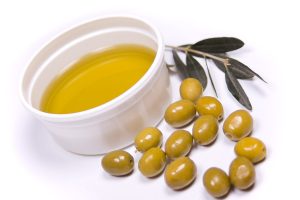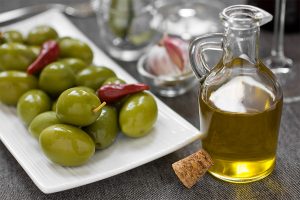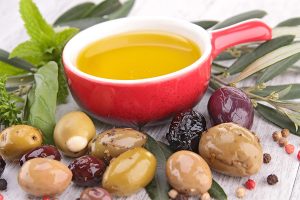
Tunisia is the most important olive-growing country of the southern Mediterranean region; over 30% of its cultivated land is dedicated to olive growing (1.68 million ha).
1-Organic Olive oil
The Tunisian organic olive oil is an extra virgin olive oil certified by international certification bodies which verify the respect and application of the organic regulations during the production and processing.
According to the target market, the operator asks the certification bodies to certify his olive oil under Tunisian, American, European or Japanese regulations.
Besides green manure, animal manure, mineral and organic products, only authorized fertilizers, such as compost are used. Pest control is achieved with biological control, authorized products and appropriate agricultural practices. Synthetic chemical fertilizer and pesticides are forbidden.
2-Benefits of olive oil
- The phytonutrient in olive oil, oleocanthal, mimics the effect of ibuprofen in reducing inflammation, which can decrease the risk of breast cancer and its recurrence. Squalene and lignans are among the other olive oil components being studied for their possible effects on cancer.
- A study published in the scientific journal Diabetes Care showed that a Mediterranean style diet rich in olive oil reduced the risk of type II diabetes by almost 50 percent compared to a low fat diet. Type II diabetes is the most common and preventable form of diabetes.
- Older individuals who consume olive oil daily may be able to protect themselves from a stroke, according to a new study from France published in the online issue of Neurology.
- A diet rich in olive oil may actually be able to slow down the aging of the heart.



3-Marketing of the olive oil
During the last decade, the annual average production was about 104 600 tons of olive oil. THE ONH collected 67 500 tons, is 65,5 %, to export 55 400 tons (82 % of the collected total quantity or 53 % of the total production). The first agreements of export were concluded with the EU. Since then, the market of the EU became the traditional customer for the Tunisian olive oil with more than 80 % of the exports.